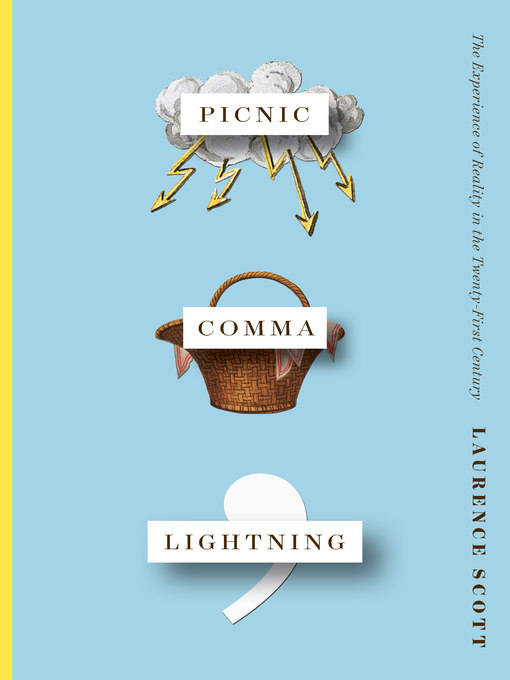
Picnic Comma Lightning
The Experience of Reality in the Twenty-First Century
کتاب های مرتبط
- اطلاعات
- نقد و بررسی
- دیدگاه کاربران
نقد و بررسی

February 18, 2019
Scott, a writing lecturer at New York University in London, considers the nature of reality itself in a world of internet exaggeration, digitally edited photos and doctored videos, and humanoid robots in this wide-ranging philosophical investigation. He uses the recent deaths of his parents as an entrance into this subject, demonstrating how reality becomes unmoored during periods of grieving (death, he declares, is like “the flicking of a light switch, although whether it has been turned on or off is unclear”). Most often, Scott considers reality through the prism of literary criticism, commenting, for instance, on the newfound popularity of Margaret Atwood’s The Handmaid’s Tale in an era of greater restrictions on women’s reproductive rights, or relating the “God-like” voice of the Amazon Echo to the “insinuating oneness of all things” explored in Jean-Paul Sartre’s Nausea. A chapter on symbolism and metaphor in tech is particularly clever, exploring how “the textualisation of our reality,” through the internet and digital communication, has allowed stories from marginalized individuals and groups to proliferate, thus dispelling stereotypes. Scott’s acutely perceptive book delivers a thoughtful message about finding an authentic way to live at a time when reality itself can seem built on shifting sands.

April 15, 2019
Centrifugal excursions into the nature of reality, a sad and confusing place for most of us. George Orwell once noted, presciently, that the lasting harm caused by totalitarian regimes lay not in the atrocities they committed but in their assaults on "the objective concept of truth." Truth is reality, and, writes Scott (Writing/New York Univ. in London; The Four Dimensional Human: Ways of Being in the Digital World, 2016), reality is being mediated away from us. "What does it feel like to be responsible for generating a sense of reality in a culture that accuses itself of being fictional?" he wonders. Then he looks at the many evasions our culture permits us, from the philosophical concept that reality is simply a shared set of hallucinations to the widely shared tenet that there is no such thing as objective truth to begin with, which allows politicians to lie savagely and then, when confronted with their lies, to cry that it's fake news. Alternative facts, alternative realities, alternative truths; all add up to what Scott nimbly calls "tears in the fabric of normalcy, reason and accountability." The author moves from one subject to another with sometimes-neck-snapping speed, populating his pages with names and events that in many instances will be ephemeral in a few years (Britney Spears, Cosmo Kramer) but with others that are eternal (W.H. Auden, Aeschylus, Doris Lessing). Scott ably deconstructs how shared realities are forged, all of which involve the skillful, meaningful storytelling of which he himself is an ascended master. As he moves from the nature of story, love, memory, and other such things that enfold us while embracing and being embraced by "the weird scale of the private life of the mind," the author makes it clear that reality is not always a pleasant place to be, for framing this eminently literary story and running through it are memories of his mother as she dies, too young, of cancer. A lucid, if refractory and quite brilliant, critique of a fragmented culture in a peculiar time.
COPYRIGHT(2019) Kirkus Reviews, ALL RIGHTS RESERVED.

























دیدگاه کاربران